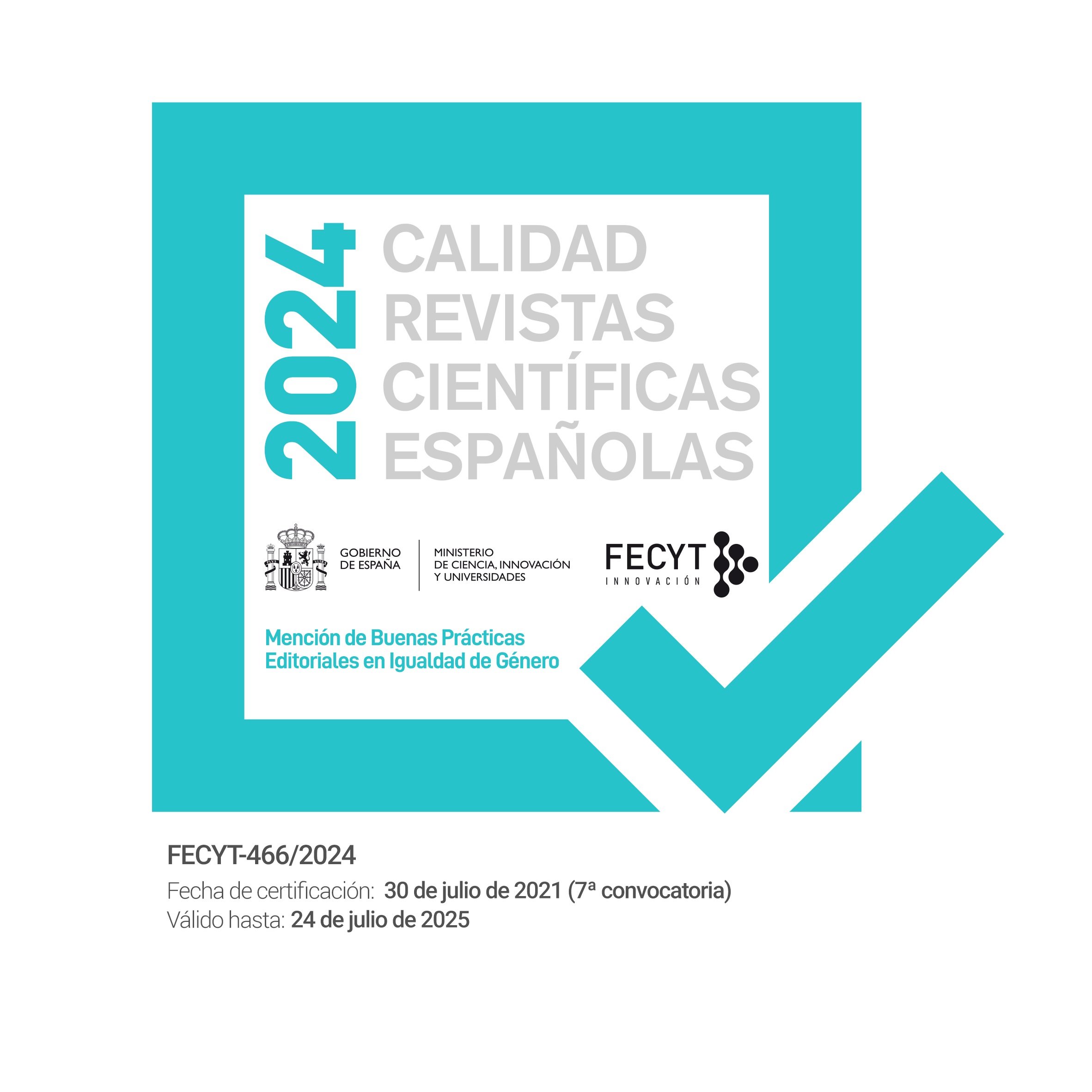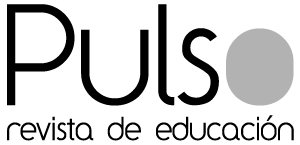About the Journal
Focus and Scope
The journal Educación artística: revista de investigación (EARI), edited by the Institute of Creativity and Educational Innovation from the University of Valencia, is an annual publication, aimed at specialists, researchers and professionals in the fields of arts education, arts and creativity.
EARI publishes original scientific articles reviewed by blind peers in the typologies of studies research and reports, studies and experiences. In addition to scientific articles, bibliographic reviews and interviews are also included, which are evaluated by the editorial committee. All published documents are related to disciplines contextualized in the arts, audiovisual media, education and culture.
EARI admits proposals mainly in Spanish. The works must be original and unpublished and not be currently under consideration for publication elsewhere, being the responsibility of the authors to comply with this rule.
EARI is an open access journal and is published in double printing: print (ISSN: 1695-8403) and electronic (e-ISSN: 2254-7592), identifying each work with a DOI (Digital Object Identifier System).
Typology of publications
The journal contributions can be:
- Articles. Original analysis or studies research papers (maximum 6000 words, references included), as well as reports, studies and experiences (maximum 5000 words, references included) will be published. Submitted articles will be reviewed by blind peers.
- Dossier. In some issues of the journal, the articles sent can be destined to the “Dossier” section, monographs previously organized. The articles included in the “Dossier” section will include original research papers (maximum 6000 words, references included), as well as reports, studies and experiences (maximum 5000 words, references included). Articles submitted to the "Dossier" section will be reviewed by blind peers.
- Interviews with people who are especially relevant due to their connection to the issues addressed by the journal (maximum 6000 words of text). They will be subjected to a review process by the editorial committee and scientific advisor.
- Reviews: descriptive and critical texts relating to a recent high-quality publication of a certain specialty, the editing of the journal must not be older than two years. The length of the text must be 600 words. The image cover of the reviewed publication must be sent along with the review. It will be subjected to a review process by the editorial committee and scientific advisor.
Contact information:
Peer Review Process
The texts received for publication by Educación artística: revista de investigación (EARI) will be submitted to the following arbitration system:
- First, the texts will be reviewed by the Editorial Committee to check if they meet the requirements indicated in the guidelines of the journal. Otherwise they will be rejected, notifying the authors of the reasons for such decision.
- Secondly, EARI will request a report from two expert evaluators in the field, chosen for their prestige in the study area of the article, preferably external. According to the blind peer evaluation system, each article will be evaluated anonymously. Evaluators are asked to confirm their availability within one week. The usual deadline for reviews is five weeks. If necessary, a third reading would be carried out by another evaluator.
Through a specific form, article proposals will be evaluated under the following evaluation criteria:
- Adequacy to the topics of the journal.
- Originality and scientific contribution of the proposal.
- Rationale and research and / or reflective relevance.
- Formal adaptation of the structure, wording and style.
As a result of the evaluation, texts may be accepted, rejected or accepted with the condition that the author proceeds to make non-substantial changes in the text. The reasons for such decision will be notified in writing.
Open Access Policy
This journal provides immediate free access to its content under the principle of making research freely available to the public, which fosters a greater global knowledge exchange.
Anti-plagiarism policy
Educación artística: revista de investigación maintains an anti-plagiarism policy to guarantee the originality of its writings. The editorial team reviews all submissions. In the same way, it is recommended that authors rely on any of the existing anti-plagiarism tools to previously check the level of coincidence of their texts. Writings that have been previously published in whole or in part will not be accepted. If the manuscript contains plagiarism, it will not be accepted.
Ethical code
Educación artística: revista de investigación is inspired by the ethical code of the Publications Ethics Committee (COPE), for the behavior of authors, editors and reviewers.
Inclusive language
The texts will use inclusive and non-sexist language. In general, the use of collective, generic or split nouns and adjectives will be preferable, trying in the latter case that the wording is not excessively complex or repetitive (Use guide for an egalitarian language).
Sex and gender in research
When writing research works, authors must avoid gender stereotypes and biases whereby men are regarded as the universal point of reference, biological differences are exacerbated or socially constructed differences are seen as natural.
For more information, see the "Gender in EU-funded research" toolkit.
Editorial Team
Director/Editor in Chief: Ricard Huerta. Universitat de València
Secretario/Editorial Assistant: Ricardo Domínguez. Universitat de València
Comité Editorial Internacional/International Editorial Board
Amparo Alonso Sanz. Universitat de València (España)
Lilian Amaral. Universidade de São Paulo (Brasil)
Severo Cardone. Università de Foggia (Italia)
Ricardo Domínguez Ruiz. Universitat de València (España)
Cruz María Dotel. Ministerio de Educación MINERD (Santo Domingo)
Analice Dutra Pillar. Universidade Federal do Rio Grande do Sul (Brasil)
Carlos Escaño González. Universidad de Sevilla (España)
Horacio Gnemmi. Universidad Nacional de Córdoba (Argentina)
Adriana Laurenzi. Universidad Nacional de las Artes (Argentina)
Alejandro Macharowski. ESAT Valencia (España)
Montse Martínez Valenzuela. Universitat Politècnica de València (España)
David Mascarell Palau. Universitat de València (España)
Luzmila Mendívil Trelles. Pontificia Universidad Católica del Perú (Perú)
Joël Mestre Frossard. Universitat Politècnica de València (España)
Sol Moren. Universidade do Porto (Portugal)
Carmen Moreno. Universidad Complutense de Madrid (España)
Olga Lucía Olaya. Universidad de la Sabana (Colombia)
Ricard Ramon Camps. Universitat de València (España)
Paloma Rueda Gascó. Universitat de València (España)
María Dolores Soto González. Universitat de València (España)
Rafael Sumozas García-Pardo. Universidad de Castilla-la Mancha (España)
María Vidagañ Murgui. UJI Universitat Jaume I (España)
Comité Científico Internacional/International Scientific Board
Gabriela Augustowsky. Universidad Nacional de las Artes (Argentina)
Ana Mae Barbosa. Universidade de São Paulo (Brasil)
Ramón Cabrera Salort. ISA Instituto Superior de Arte (Cuba)
Rejane Coutinho. Universidade Federal de São Paolo (Brasil)
Salomé Cuesta. Universitat Politècnica de València (España)
Luis Hernán Errázuriz Larraín. Pontificia Universidad Católica de Chile (Chile)
Marcelo Falcón Vignoli. Université René Descartes París Sorbonne (Francia)
Alexander Fedorov. Taganrog State Pedagogical Institute (Rusia)
Lêda Guimarães. Universidade Federal de Goiás (Brasil)
Manuel Hernández Belver. Universidad Complutense de Madrid (España)
Marian López Fernández-Cao. Universidad Complutense de Madrid (España)
María José Martínez de Pisón. Universitat Politècnica de València (España)
Everson Melquiades. Universidade Estaduale de Pernambuco (Brasil)
Fernando Miranda Somma. Universidad de la República de Uruguay (Uruguay)
Isabel Moreno Montoro. Universidad de Jaén (España)
Chiara Panciroli. Alma Mater Studiorum. Università di Bologna (Italia)
Alfredo Palacios Garrido. Centro Universitario Cardenal Cisneros (España)
Rocío Polania Farfan. Universidad Surcolombiana de Neiva (Colombia)
João Paulo Queiroz. Universidade de Lisboa (Portugal)
Pablo Rojas Durán. Ministerio de las Culturas, las Artes y el Patrimonio (Chile)
Ángeles Saura Pérez. Universidad Autónoma de Madrid (España)
Apolline Torregrosa. Université de Génève (Suiza)
Publication Frequency
Information services
- ULRICHSWEB
Printed version
Yes
Price
Printed version
SPAIN: Single issue: € 12.00
EUROPE: Single issue: € 18.00
REST OF THE WORLD: Single issue: € 21.00
Orders
Publication fees
Educación artística: revista de investigación is an open access journal that does not charge authors for article processing (submission, review or editing) or publication.
Sponsors
- Àrea de Didàctica de l'Expressió Plàstica- Universitat de València
- Vicerrectorado de Investigación y Política Científica- Universitat de València
- Vicerectorat d'Alumnat, Cultura i Esport. Àrea Activitats Culturals de la UPV
Journal History
The journal was born in 2003 with a first issue that addressed the situation of the area of knowledge of artistic education from a multifaceted perspective, through the participation of researchers who had met at the 2nd Research Seminar on Art Education, held in Valencia in 2002. That first volume of EARI contained an extensive monograph entitled “Radiography of Art Education”, in addition to other sections that completed the issue. The edition was made on paper, with a circulation of 1000 copies that was widely distributed, and was very well received. At the meeting that led to the release of that first volume of EARI, the attendees welcomed the idea of turning the edition of each new issue of the magazine into a rotary, so that a different university would be in charge each year of preparing the next volume . Certainly, this original idea did not come to fruition, and that is why we now resume the initiative, assuming the edition from the University Institute of Creativity and Educational Innovations of the University of València, the entity responsible for the journal, with the unconditional support of the Department of Didactics of Musical, Plastic and Corporal Expression of the same university. This decision guarantees continuity of this project with which we feel committed.
Now we adapt to the new university needs and to the new rhythms of society. In this sense, in this second stage of the journal we intend that the publication becomes an open forum and an element of support for research in Art Education. The annual periodicity of the magazine and its free access through the network are now specified.







